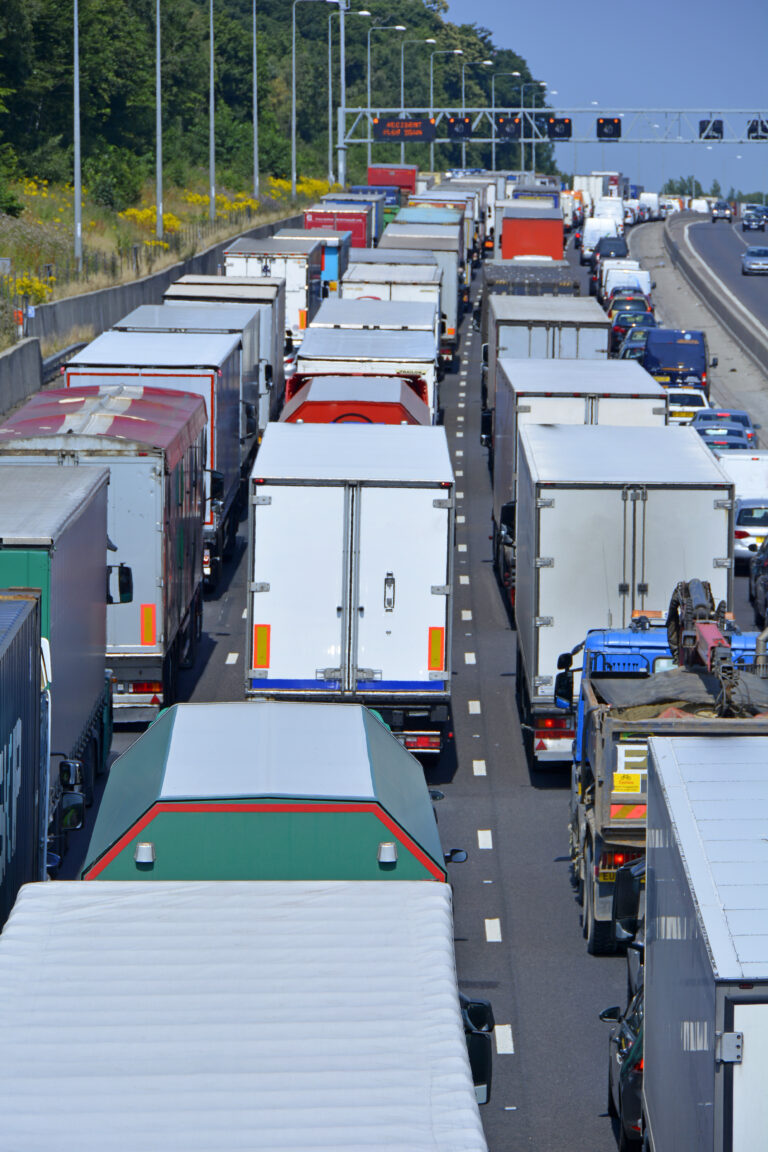The Cabinet Office has predicted queues of some 7,000 port bound trucks in Kent and delays of up to two days for freight movements by road across the Channel following the end of the Brexit Transition Period on 31 December.
According to its briefing ‘Reasonable Worst Case Scenario for borders at the end of the transition period on 31 December 2020’ the Cabinet Office is predicting that that 40% to 70% of trucks travelling to the EU might not be ready for new border controls.
It reads: “For the short Channel crossings via Dover and Eurotunnel, 30% to 50% of trucks might not be border ready when taking into account empty trucks that will not have the same border requirements. The lack of capacity to hold unready trucks at the French ports, or to turn away freight prior to boarding in the UK, could reduce the flow rate to 60-80% of normal levels at the bottom end of the readiness range.”
Elizabeth de Jong, Policy Director, Logistics UK, said the association had “long warned” government of the potential for border delays after the UK leaves the EU.
“While there is still time to put mitigations in place to avoid them, it will be a huge challenge for government and industry to achieve. The ability of traders to complete and provide the correct paperwork will be key to ensuring the continued smooth passage of goods through the UK’s supply chain, and we are urging businesses exporting to the EU to install and understand the systems they will need to use in time for the 1 January 2021 deadline.”
De Jong said it was incumbent on government to ensure logistics businesses had details of and access to the UK’s own logistics systems, including Smart Freight and GVMS, “in good time so that adequate training and testing can be carried out”.
“Full working guidance on the port systems to be used in Europe, particularly in France and Ireland, must also be provided by our EU partners to minimise delays and the potential for disruption to the supply chain at a time of year when the UK depends on imported goods across a number of sectors. With so much still to do, it is vital that all parties work together to keep the flow of trade moving smoothly between the UK and EU.”
Meanwhile British International Freight Association, Director General, Robert Keen said: “With just over 14 weeks to go before the end of the Brexit Transition Period, traders and logistics providers are still waiting for so much information and clarity from the government and are shocked by the lack of consistency in Government policy, systems planning and procedures.”
He added that BIFA members needed access to all the information they need, the resources they require and “systems that actually work” adding that the government should not “start pointing the finger of blame in our direction when you have still to provide all of the tools to do the job”.
British Ports Association Chief Executive Richard Ballantyne said: “Ports are working to ensure infrastructure is ready but is still a lot to do. In particular decisions policy makers need to agree in respect of specifications for infrastructure.
“However in terms of the wider freight operations there is perhaps even more to do. We will now be looking at ways to support the government’s drive to communicate the new requirements to the wider freight and logistics industry to avoid many of the scenarios given in the analysis from arising.”







